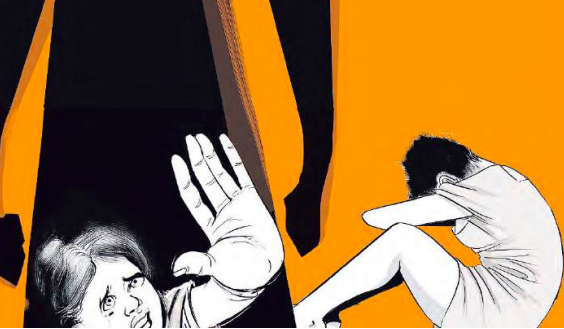
When nearly half of married Kenyan women endure violence at home, this is not just a family issue—it’s a public health crisis.
Yet, much of this epidemic remains unseen, cloaked in silence and shame.
The recent film It Ends with Us tells a harrowing story of intimate partner violence, offering a rare cultural lens into the complex realities of abuse.
Yet even as Hollywood brought this issue to the screen, its stars Blake Lively and Justin Baldoni became embroiled in a public dispute, highlighting another dimension of power dynamics: the abuse of influence in relationships and workplaces.
These stories—both fictional and real—remind us that IPV is a universal crisis. And here in Kenya, it’s a crisis our healthcare system is failing to address.
This is a pandemic we do not see, or perhaps, have chosen to ignore. Globally, one in three women experiences physical or sexual violence in her lifetime.
In Kenya, 47 per cent of ever-married women report such violence from their partners, so we are above the global average. But statistics do not capture the anguish behind the numbers.
They do not tell the story of the woman in my clinic who limped in with a broken wrist, nervously repeating, “I tripped”. Her bruises told another story, but she was not ready to speak it.
Victims often turn to hospitals and clinics, not just for treatment but as a silent cry for help. Yet too often, they are sent home with painkillers and no questions asked.
Imagine a woman sitting in a crowded emergency room, deciding whether she can risk whispering the truth about her injuries. If the nurse is not trained to listen, that moment is lost—and so is her chance for escape. Can we learn anything from the movie?
In the film, Lily struggles with the emotional grip of her abuser. She loves him but knows she must leave to protect herself and her child.
This conflict feels all too real for many survivors of IPV, who are trapped not just by love but by financial dependency, social stigma and fear of retaliation.
The movie shines a light on the courage it takes to leave, but real life is rarely as neat. Many Kenyan women face cultural norms that normalise abuse, poverty that makes independence impossible and a lack of resources to start anew. Here, leaving can feel like an impossible luxury.
The Lively-Baldoni dispute mirrors a fundamental truth about IPV: abuse is rarely just physical. It’s about control, intimidation and silencing. Whether in relationships, workplaces or Hollywood sets, power dynamics play a central role. In Kenya, these dynamics often go unchecked.
The husband who monitors every shilling his wife spends. The boss who uses his position to demean and intimidate. e healthcare worker who dismisses a patient’s whispered cry for help.
These are not distant stories—they happen around us every day. As healthcare professionals, we are uniquely positioned to intervene.
Hospitals are often the first point of contact for victims of IPV, yet our system is woefully underprepared to respond.
Here’s what needs to change: One, routine screening. Every patient presenting with unexplained injuries or chronic pain should be asked, “Do you feel safe at home?” Training healthcare workers to ask the right questions could save lives. Two, safe spaces. Clinics must create private, judgment-free areas where victims can speak freely and access immediate support.
Three, integrated support networks. Hospitals should partner with shelters, counselors, and legal advocates to provide a lifeline, not just a Band-Aid.
Four, policy advocacy. Governments must invest in comprehensive IPV response programmes, from shelter funding to public awareness campaigns In It Ends with Us, Lily breaks the cycle for her daughter’s sake.
But real life is rarely so simple. Many women stay because the alternative—poverty, stigma, or even death—feels worse. If we want change, we must address these barriers at every level, from policy to culture.
Cultural shifts are just as critical as systemic changes. We must teach young people that love is not control and that silence is not strength.
Communities
must rally around survivors, not shame them. And
healthcare workers, from doctors to receptionists, must
see IPV not as someone else’s problem, but as a health
emergency

